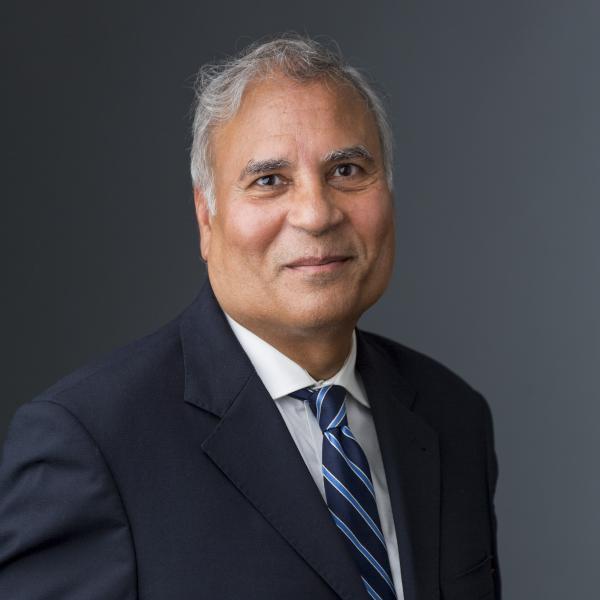
Ph.D. in Microbiology and Immunology
Our Ph.D. in Microbiology and Immunology allows you to explore advanced research in infectious diseases pathogenesis, bacterial and viral infections, cancer, allergy, and the immunology of these diseases related to host pathogen-interaction. You will learn about the challenges in medicine and cutting-edge therapies in cancer and infectious diseases. You will be able to understand illness and infection at the cellular and molecular level while engaging in multidisciplinary research projects that will advance knowledge in the field.
Doctoral candidates are prepared to engage in advanced research for the prevention and cure of infectious diseases, cancer, and allergic diseases. Active collaborations with clinical researchers are encouraged through interactions with the faculty in pathology, infectious diseases, oncology, otolaryngology, radiation medicine, and the Brander Cancer Research Institute.
Ph.D. graduates in microbiology and immunology qualify for high-level research, technical and management positions in laboratories across academia, industry, medical facilities and government agencies.
Possible Areas for Thesis Research
- Bacterial virulence mechanisms
- Influenza virus and vaccines
- Virology and viral diseases
- Pathogenesis of infectious diseases
- Allergy and holistic therapeutic strategies
- Molecular biology of neoplastic diseases
- Oncogenes and growth factors
- Molecular and cellular basis neoplastic diseases
- Immunological and biological therapy of diseases
- Cancer immunology
- Tumor microenvironment
“I and the entire faculty are committed to your education, and it is our goal to train you to be a leader in your field. The skill set you develop in the program will allow you to be at the forefront of cutting-edge research.”
- Raj Tiwari, Ph.D., Program Director
Microbiology and Immunology Ph.D. Program Curriculum
Whether you're entering through the Integrated Ph.D. program or with advanced standing, the course requirements are the same. Aside from the core didactic coursework, the main focus of the Ph.D. program is research. You'll have the opportunity to enroll in up to three lab rotations early in the program, which allows you to discover where your research interests lie.
Coursework in the Microbiology Ph.D. program starts with foundational knowledge on bacteria and viruses, including physiology, growth and structure. You'll learn how viruses infect hosts and replicate and how to analyze their nucleic acid. You'll also learn how to manipulate and study microorganisms in the laboratory.
The program brings together the study of immune response and pathogenesis and introduces you to topics like tumor development, antibiotic resistance and microbial genomics. As the program progresses, you'll develop a clear research focus and have the freedom to choose which area you want to pursue, from vaccine development to cancer research. Visit the Microbiology & Immunology curriculum page for detailed descriptions of our courses and lab rotations.
Earning your Ph.D. is a multi-step process that includes a qualifying examination and meetings with your dissertation committee. For a detailed overview of Ph.D. requirements over the length of the program, visit our Ph.D. Program Requirements page.
Microbiology and Immunology Research
Our faculty research programs span pathogenesis of bacterial, viral and parasitic diseases, vaccine and diagnostic development, immunology and cancer, host-pathogen interactions and emerging vector-borne diseases.
Pathogens currently studied in the department:
- Borrelia
- Babesia
- Francisella
- Yersinia
- Streptococci
- Toxoplasma gondii
- Influenza
- Epstein Bar virus
- SARS-CoV-2
- HIV
Cancer research in the department:
- Thyroid cancer
- Melanoma
- Breast cancer (molecular pathogenesis focus)
- Diagnostic and prognostic biomarkers and actionable therapeutic targets
- Immunotherapeutic vaccines for immunotherapy of B cell lymphomas
- Molecular basis of allergy and novel holistic therapeutic strategies
Department Research Collaborations
The Department boasts significant collaborations with clinical departments that promote translational research. Departmental research support is provided by a variety of sources, including the National Institute of Health, U.S. Department of Health (BARDA) Department of Defense, New York State, private foundations and biomedical corporations. Departmental faculty are also active collaborators in several national and international research programs.
Microbiology Labs and Equipment
Our labs are well-equipped for modern molecular microbiology and immunology research and include a Biosafety level-3 laboratory. Core equipment within the Department includes a Nikon Tie inverted fluorescence microscope with motorized XY and Z stage equipped for deconvolution and extended live cell imaging, a Miltenyi Biotec MACSQuant cell analyzer and Applied Biosystems 7900 HT Real-time PCR system (Taqman).
Admission into the Microbiology Ph.D. Program
The admissions committee for our Ph.D. program views each application holistically. A master's degree or GRE is not required to enter the program. Prior wet lab research experience is recommended for Ph.D. applicants. Review all Ph.D. admissions and application requirements.
Microbiology and Immunology Faculty
The Department of Pathology, Microbiology and Immunology, is home to 13 faculty members in addition to research and support staff and graduate/medical students. All of our faculty members hold either a Ph.D., M.D., or both. Our faculty experts have a strong research focus in areas like host-pathogen interactions, emerging vector-borne diseases, molecular pathogenesis in cancer and vaccine development, allergy and holistic treatment strategies. Graduate faculty mentors provide guidance for your original laboratory research and our 2:1 student-faculty ratio allows for plenty of individual attention. Learn more about our knowledgeable and experienced biomedical sciences faculty members.
Contact

Raj K. Tiwari, M.S., Ph.D.
- raj_tiwari@nymc.edu
- (914) 594-4870

